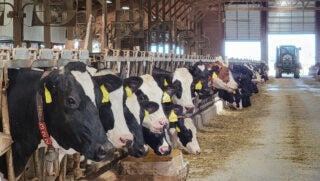Fall is just around the corner and that means corn mazes. Culver’s is once again teaming up with corn maze designers to grow messages that celebrate agriculture while growing our guests’ appreciation for those who produce food.
10 fun facts to know before winding through a corn maze this year:
- Don’t be fooled by the myth that keeping to your right on the maze walls will always lead you to the exit.
- No maze path should be used more than twice.
- If a new path leads you to a junction of ways you’ve visited before, retrace your steps to where you entered it.
- Many mazes offer trivia at checkpoints to help you successfully navigate your way to an exit.
- On average, the majority of mazes are between 8 and 12 acres.
- The length of time it takes to get through a maze varies, but on average people finish within one hour.
- Some mazes are planted using GPS coordinates that allow the seeds to only be placed where the maze walls will be. Other maze owners cut the design into their fields when the corn is 3 to 6 inches tall.
- When tassels form at the top of the stalk, the corn has reached its full height.
- The idea for growing a message of thanks into corn mazes came in 2014 when Culver’s worked with an FFA chapter in Tracy, Minnesota, to bring the first Thank You Farmers Project corn maze to life.
- Since 2014, Culver’s has grown 38 Thank You Farmers Project mazes in 19 states.
This year, Culver’s Thank You Farmers Project corn mazes are grown with the following mazes:
- County Line Orchard– Hobart, Indiana
- Twin Falls Corn Maze– Twin Falls, Idaho
- Olivet FFA Corn Maze– Marshall, Michigan
- Mayr Family Farm– Deforest, Wisconsin
- Brookdale Farm– Eureka, Missouri
“Corn mazes are such a natural way for us to celebrate agriculture and give our guests the chance to connect a bit more to their food,” said Jessie Kreke, Culver’s senior marketing manager. “If you’re located near one of our corn mazes this year, we hope you’ll have the chance to wind your way through.”
Since the creation of the Thank You Farmers Project in 2013, Culver’s has donated nearly $2 million to advancing agricultural education and helping guests understand why it’s so important to support those who provide food for our growing population.


